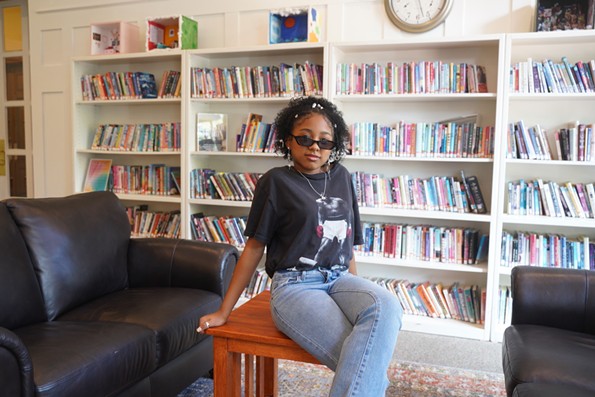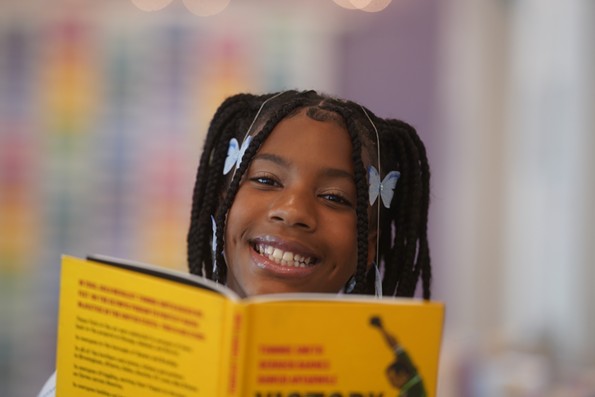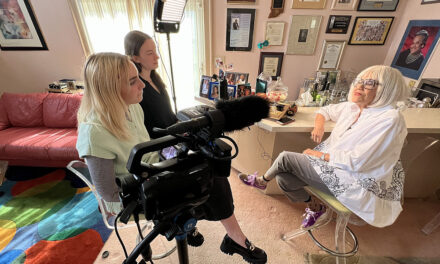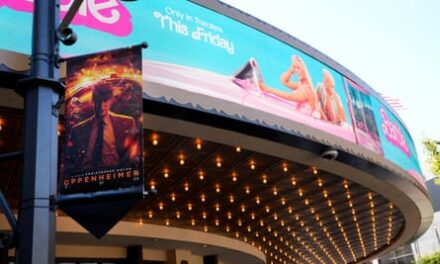There’s a reason slaveholders didn’t want enslaved people to learn to read.
Girls For a Change (GFAC), a nonprofit aimed at empowering Black girls in Central Virginia, sees a direct connection between not wanting Black people to read over a century ago and the most recent movement to ban books written by Black authors and about Black history and culture.
To address the issue, the nonprofit is raising funds to demolish its current building and replace it with a new facility which will include a GFAC library, a $5.5 million project. You can go here to donate. So far, they’ve raised over $92,000.
“We were inspired when Amanda Gorman took the podium to read her powerful poem during the 2021 presidential inauguration,” says CEO Angela Patton. “We were enraged when they pulled her book from a public school library shelf. And then, they pulled more books and stories written by Black authors and other people of color.”
The group’s mission is to prepare Black girls for the world, and the world for Black girls, which includes ensuring access to their history, their culture, and their stories.
“Beyond that, it means offering all that the world of reading can bring. Reading books allows you to tap into someone else’s story,” she explains. “When we learn about other perspectives, we gain understanding and empathy. The more we all read, the more we expand our minds and become better together.”
Yet GFAC is not looking to dictate what girls should read. Instead, the group, which teaches girls to visualize their futures and potential through discovery, development, innovation and social change in their communities, strives to co-create with the girls. “And so, in true GFAC spirit, the library will be co-curated with input from the girls we serve to ensure we have books they want to read,” Patton explains. “We’ll also have books for parents to use as tools and resources to help guide them in situations.”
The GFAC library will have books from all types of authors. The group’s current library was intentionally created to offer girls books that they would not read in schools, specifically books that help girls know more about themselves, love themselves, and do better for themselves.
For the new library, Patton says they’ll select books that discuss issues in their communities and books that share experiences from all walks of life: autobiographies, books in African languages, books about women or people who have made significant contributions, and books that allow the girls to understand why and where they are. “Our library will be where girls can explore their own path in life,” she says. “We want to make sure our girls are extremely well rounded and that they can see themselves in stories and narratives.”

-
Courtesy of Girls for a Change
- Milani Hopkins
In contrast to the limitations placed upon enslaved people, the goal is for girls to be exposed to new ideas, to discover, to grow, and to develop. Reading is powerful and can empower us to be our best selves or help us discover who we are and who we want to be. “When you tell someone they can’t do something, you limit them and their possibilities,” she says. “Education is the key to opportunity.”
Currently, Girls for a Change is only taking monetary donations, although once the library is built, they’ll provide the opportunity for community members to donate from a selection of books that their girls have chosen. As part of the co-creation process, Patton plans to ask GFAC participants what books they wished they’d read in school. “What books do they wish they were assigned essays on?” she muses. “This library is an act of freedom and as part of that, we want to let the girls dictate their own freedom.”
Replacing the small, older building with a new facility is reflective of GFAC’s mission to be the change they want to see. Patton sees it as embarrassing that in America, there’s a push for better test scores and education while also telling people what they can’t read. The GFAC library is designed to create change. “Our organization is called Girls for A Change because we don’t want things to stay the same. We want social change, we want change in our communities,” Patton says. “This library is an act of freedom. We’re letting the community know that we will not stand by and let Black girls lose access to knowledge.”
Bigger even than the new library is the Girls for a Change building being built for coming generations.
“This new building, which we officially own, is our rebellion. We want the girls we serve to see how committed we are to having a safe space where they can be themselves and thrive,” says Patton with pride. “We also want to set an example for future generations that Black women can own businesses, property, and create the spaces we want on our own terms.”
To donate to the Girls for a Change campaign: https://girlsforachange.networkforgood.com/projects/172354-1-million-reasons-to-build

-
Courtesy of Girls for a Change




